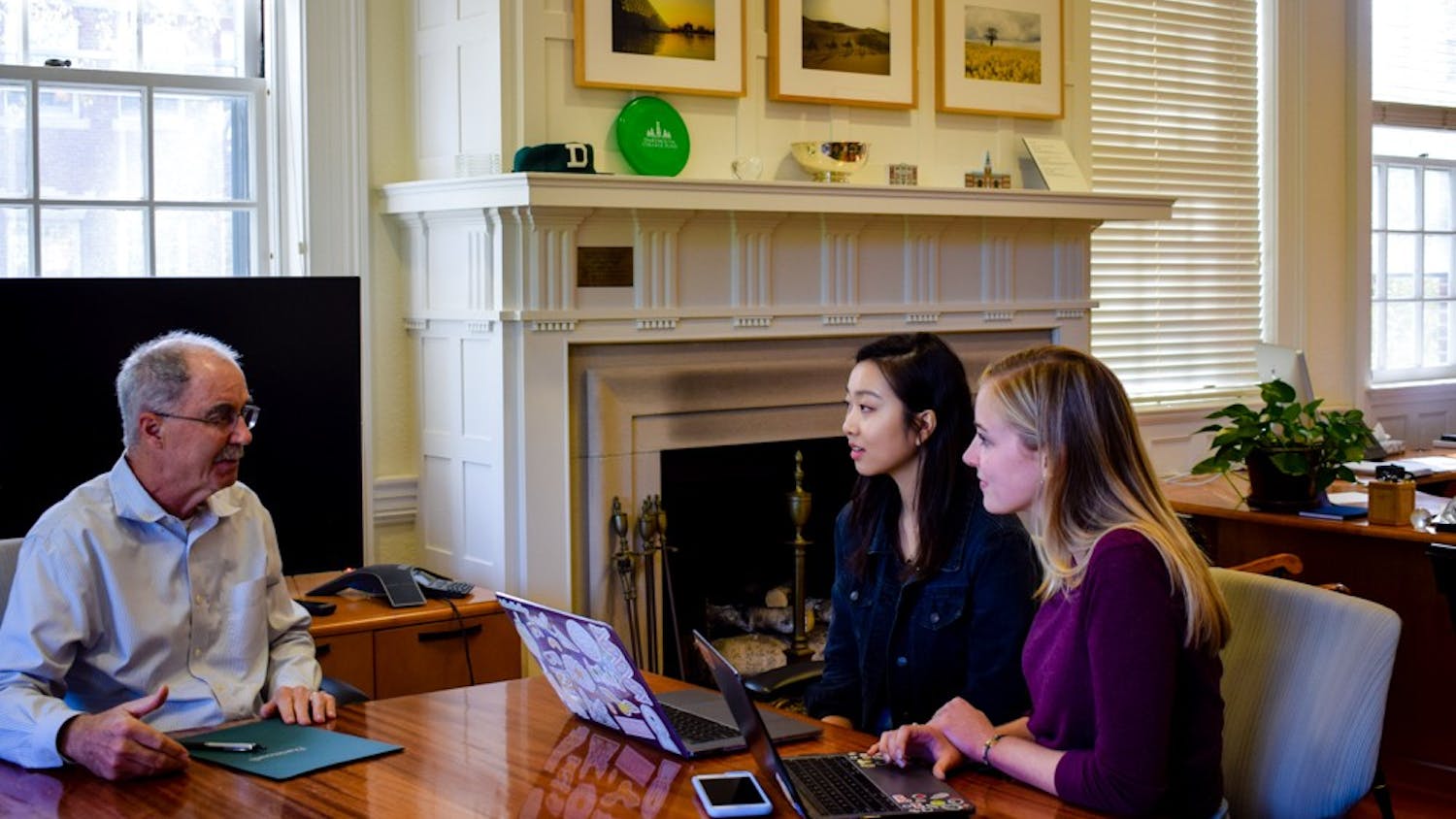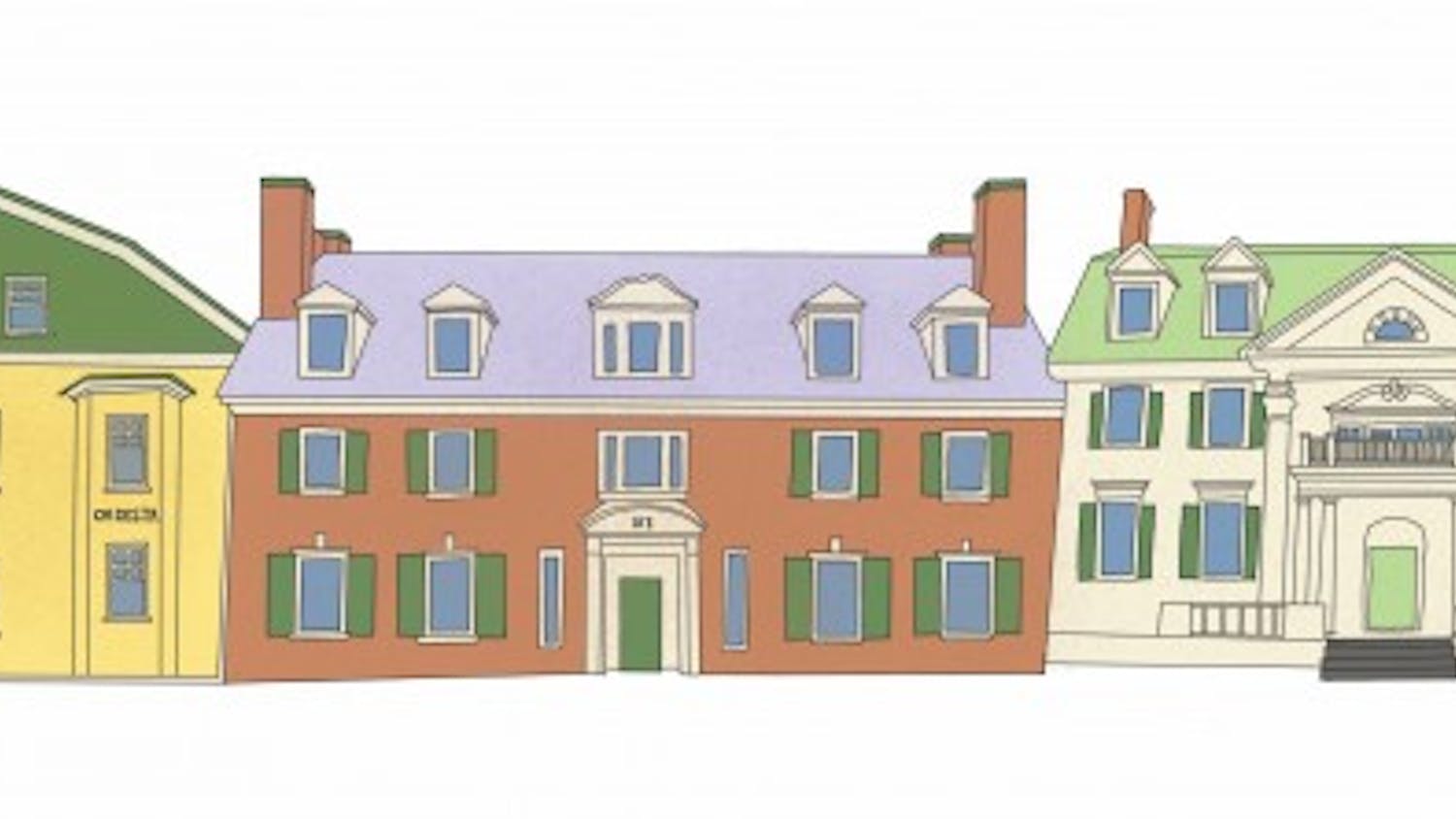This article is featured in the 2019 Homecoming special issue.
When Dartmouth graduated its first black student, Edward Mitchell, in 1828, the College did not keep records of students’ race. While some mixed-race students may have attended earlier and graduated, there is no official documentation of their presence on campus. This year, in honor of Dartmouth’s 250th anniversary, the Black Alumni of Dartmouth Association is working to change that.
According to a presentation given by Garvey Clarke ’57 at BADA’s 25th anniversary reunion, the organization’s long-term goals are to provide black Dartmouth undergraduates with more guidance on career opportunities and to continue to develop the relationship between black undergraduates and alumni. Overall, BADA hopes to assist Dartmouth in better serving the needs of black students by reviewing the College’s policies and practices and to increase efforts to recruit more black students in the future. Twenty-two years later, BADA is also seeking to document the black experience at Dartmouth.
“I work with BADA, and I’m in conversations with them about helping them collect [materials and] helping them better document the African American experience on campus,” said college archivist Peter Carini. “We’re setting up a conduit for members of BADA to be able to offer materials to Rauner so we’re able to build out a better, more robust version of that.”
In 2018, Dartmouth launched its Historical Accountability Student Research Program as part of its Inclusive Excellence plan, which fully funds four term-long student research fellowships and three student research internships that allow students to learn more about Dartmouth’s history through the College’s archives and special collections. The program has six main initiatives: increase faculty diversity, increase staff diversity, build a more inclusive community, increase transparency, confront and learn from the past and be accountable. The webpage for the “Confront and Learn from the Past” initiative lists two main tasks: to commission public projects on Dartmouth’s history of diversity and inclusivity and to make existing and forthcoming research on Dartmouth’s past accessible and available for research, teaching and community outreach, both of which are designated as being in progress.
However, in terms of Dartmouth’s institutional ties to slavery, the College has not formally set up a commission or a particular way of addressing its ties, according to Carini. While there are formalized, high-profile programs to investigate slavery at many peer institutions, the College is taking a more decentralized approach as it examines the legacy of pivotal school leaders such Dartmouth founder Eleazar Wheelock.
According to Carini’s research, Wheelock owned at least 19 slaves throughout his life — some of which contributed to the construction of Dartmouth’s campus — and Wheelock offered his slaves Christian knowledge in an attempt to convert them in “probably a paternalistic way.” He may have also given his younger slaves a basic primary school education.
Dartmouth students have often taken action to promote racial diversity on campus. For example, Mitchell was accepted in 1824 after a petition by students at the time to allow him to study at the College. Veterans coming to Dartmouth after World War II started a movement to eliminate discriminatory language in fraternity constitutions. Because many of those clauses were enshrined in the bylaws of national Greek organizations, some of Dartmouth’s fraternities, such as Phi Tau, went local in order to desegregate.
Coming to Dartmouth can still be difficult for students of color today. Demi Stratmon ’20, the secretary of Alpha Kappa Alpha — a black sorority — said that arriving on campus was “a major culture shock.”
“Coming to a predominantly white institution was extremely difficult in the beginning of my college career,” she wrote in an email. “I came to the quick realization that I had to find people who I could relate to in order to get through my college career and found those people through organizations that catered to the Black students on campus such as the Afro-American Society, Black Girls Are Magic, and Alpha Kappa Alpha Sorority, Incorporated.”
Stratmon and the Afro-American Society are working to enrich and protect the experience of black students at Dartmouth; this year, the society’s theme is “Sustainable Community, Leadership and Accountability for Dartmouth’s Black Population,” focusing on making Dartmouth a better place through respect for all students and taking action to put their future in their own hands.
“It is important that Black students feel like they are apart [sic] of a strong community so when issues arise from other parts of campus they know they are supported and heard,” Stratmon wrote.
Stratmon also wrote that while she initially had misgivings about being a minority student at Dartmouth, her experience — one that she notes is not shared by all black students or espoused by either Alpha Kappa Alpha or the Afro-American Society — has inspired pride in who she is.
“This experience has made me even prouder of my history, traditions, culture, and racial background,” she wrote. “I know who I am and what it means to be a strong Black woman in a predominantly white space and this is an important lesson as I step into greater American society after graduation.”

Lauren ('23) is news executive editor for The Dartmouth. She is from Bethesda, Maryland, and plans to major in government and minor in public policy.



